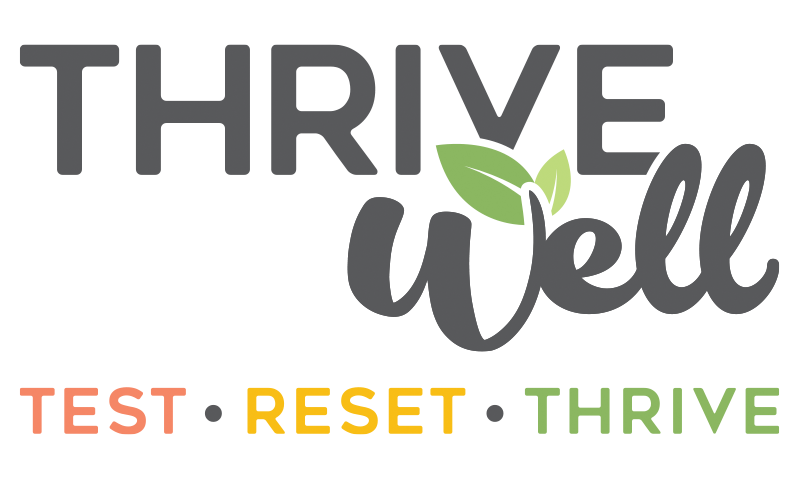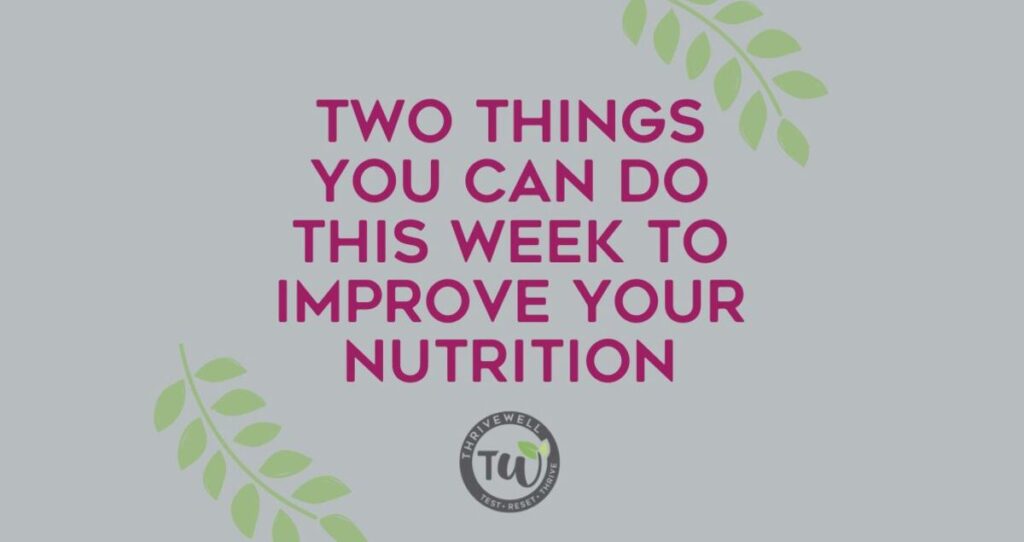Good nutrition is key to living a healthy and energetic life. Many people struggle with improving their diet due to busy schedules, lack of knowledge, or confusion about where to start. This article will help you understand how to improve your nutrition step-by-step, making it easy and achievable for everyone. Let ThriveWell Solutions guide you on your journey to a healthier, happier you.
Why Good Nutrition Matters
The way you feed yourself significantly impacts your total health status. Your body requires balanced nutrition to obtain essential energy and necessary nutrients that help its operations. Nutrition that is beneficial to your health enhances your body’s immune function while minimizing the probability of developing diabetes or heart disease, minimizing mental health struggles, and enhancing mental clarity. Healthspan extension, together with life quality improvement, represents the central purpose beyond physical longevity.
Incorporating leafy greens and colorful vegetables in your diet reduces inflammation, and eating healthy fats supports brain functioning. Sound nutrition raises your daily energy level and improves sleep quality, deepening your general wellness status.
Related Posts : Nutrition for Athletic Performance
Signs Your Nutrition Needs Improvement
The signs that you need better nutrition often escape notice in today’s world. Common signs that your eating habits require attention include persistent tiredness, contin, continuous sickness, alongside drain, and levels. Lack of essential vitamins creates opportunities for skin issues and leads to both brittle and hair loss. You need to take control of your nutrition because these are the symptoms you currently experience. Early treatment of these warning indicators helps stop serious medical issues from developing.
Essential Nutrients and Their Functions
Macronutrients
Macronutrients are the foundation of your diet and include carbohydrates, proteins, and fats:
- Carbohydrates:
To provide energy for daily activities, opt for whole grains, fruits, and vegetables instead of refined carbs. Whole grains like quinoa or brown rice release energy slowly, keeping you full longer.
- Proteins:
Help build and repair tissues. Add lean meats, beans, tofu, and nuts to your meals. Proteins are also essential for producing enzymes and hormones.
- Fats:
Support brain health and hormone regulation. Focus on healthy fats like avocados, olive oil, and nuts. Omega-3 fatty acids from fish like salmon can reduce inflammation and promote heart health.
Micronutrients
Micronutrients, such as vitamins and minerals, are vital for your body to work efficiently:
- Vitamins:
Support your immune system and overall health (e.g., Vitamin C for immunity, Vitamin D for bone health). Incorporate citrus fruits, dairy, or fortified alternatives into your diet.
- Minerals:
Essential for muscle function and bone strength (e.g., calcium, magnesium). Dark leafy greens and nuts are great sources of these nutrients.
Hydration
Although frequently ignored, water is among the vital foundational macros of proper nutrition. Drinking enough water leads to healthier digestion and boosts energy while benefiting your skin condition. Thorough hydration requires you to drink at least 8 glasses of water daily, together with herbal tea, cucumbers, and other water-rich foods. Water maintenance through regular hydration prevents symptoms such as headache and fatigue while harming brain focus performance, so maintain a reusable water bottle nearby during daily activities.
How to Improve Your Nutrition Today
Balanced Diet Basics
Achieving dietary balance remains easy even when life gets hectic. Complete your meals with the “plate method,” which requires vegetables to cover half of your plate and lean protein and whole grains to fill a quarter each. Each healthy meal should include some beneficial fats as the final ingredient. Food rotation among meal choices contributes to nutrient variety consumption.
Smart Meal Planning and Preparation
Planning your food in advance reduces your chances of turning to unhealthful fast food and snacks. Devote one day per week to preparing your weekly meals. Prepare substantial healthy dishes, including grilled chicken, quinoa, and roasted vegetables, because you can repeatedly heat these elements daily. Properly selected storage containers allow this process to become streamlined.
Incorporate Whole Foods
Whole-natural foods should replace all processed items in your food choices. Eat whole foods such as fresh fruits, vegetables, whole grains, and lean proteins instead of buying packaged sweets. Your nutrition levels improve when you eat whole foods, and your body stays full for longer periods of time. When considering food choices, the health benefits of almonds and apples far outweigh processed granola bars.
CTA: Ready to take the first step toward healthier eating? Contact ThriveWell Solutions for personalized guidance and support.
Avoiding Common Pitfalls
Limiting Processed and Sugary Foods
Processed foods include unseen sugars, unhealthy fats, and synthetic chemicals that ultimately harm your health over an extended period. Replace artificially sweetened drinks with water and unusual fruits used for beverage infusion—snack on nuts, yogurt, or fresh fruit instead of chips and candy. Reducing extra sugar from your diet will stabilise your daily energy levels, thus preventing major blood sugar dips.
Beware of Over-restrictive Diets
When people follow crash diets combined with severe restrictions, their bodies can miss essential nutrients, and these methods generally lack sustainable results. Build a plan to introduce modest, sustainable modifications to your diet that can become permanent lifestyle changes. To prevent diet failures, you must control your portion sizes when eating your favorite foods.
Managing Eating Out
Your nutritional requirements stay intact when you decide to eat at restaurants. When choosing a dining option, check if your meal includes grilled,,, steamed, or baked preparation. Also, request sauces and dressings come with your food separate from the main dish. Request menu alterations when you need your meals to accommodate your particular requirements. Toilet dishes up multiple healthy menu options, which you should utilize.
The Role of Lifestyle in Supporting Nutrition
Physical Activity
Physical activity is an excellent complement to proper eating habits. Exercises such as walking, jogging, and yoga, alongside strength training, can boost your metabolism while you work on maintaining a normal weight. To achieve peak health status, you should perform moderate exercise for at least thirty minutes on most weekdays.
Sleep and Stress Management
Your eating habits strongly respond to how you sleep and the stress levels you experience. People with sleep problems tend to develop secret desires for sweet and high-fat foods, and those under stress transform food into a coping mechanism. Getting 7-9 hours of sleep daily while practicing stress management through meditation or journaling works to enhance your eating habits. Sleep quality greatly benefits from following good sleep habits that include keeping away from electronic devices before bedtime.
Personalized Nutrition Plans
Why Personalization is Key
Every individual has unique nutritional needs based on factors like age, activity level, and health conditions. A one-size-fits-all approach doesn’t work for everyone. For example, an athlete’s dietary requirements differ from someone with a sedentary lifestyle.
Consulting a Nutrition Professional
A certified nutritionist can help create a customized plan tailored to your needs. ThriveWell Solutions specializes in functional nutrition and detox programs to help families uncover the root causes of health challenges and build long-term wellness. Our experts use targeted testing to ensure your plan addresses your unique needs.
CTA: Don’t wait—schedule your free consultation with ThriveWell Solutions today and start your personalized nutrition journey.
Conclusion
Improving your nutrition doesn’t have to be overwhelming. You can make significant progress toward better health by focusing on balanced meals, whole foods, and small lifestyle changes. ThriveWell Solutions is here to support you every step of the way. Take control of your nutrition today—your body will thank you.
About ThriveWell Solutions
ThriveWell Solutions is dedicated to helping families overcome food sensitivities, gut health issues, and chronic inflammation through personalized functional nutrition and detox programs. By focusing on uncovering the root causes of health challenges, ThriveWell Solutions empowers clients to lead vibrant, active lives free from chronic symptoms.
CTA: Contact ThriveWell Solutions now to learn more about how we can help you thrive!



